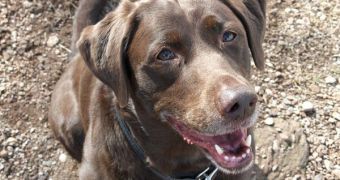Ed and Nina Otto, from Boca Raton, Florida, are the first US owners of a cloned dog, having paid $155,000 to resurrect their former beloved pet, Sir Lancelot. California-based company BioArts, working from Korea, was responsible for creating the new puppy, following an action they held last July, during which they put five cloning procedures up for grabs. The Ottos never hesitated, and on Monday, their former pet returned in the form of a 17-pound bundle of joy. Their previous dog had died in January 2008, due to old age, and already the new Labrador retriever seems to be filling his predecessor's shoes quite nicely, the family says.
They have a genuine menagerie at home, comprised of ten dogs, ten cats, six sheep and four parrots. Ed Otto says that the former Sir Lancelot was the leader of them all, and ensured that there were no conflicts between them. "He was a human dog. He read your emotions. He knew when to be with you and when to leave you alone. And he was the 'crew chief' of the dog population. He could understand English and read hand signals," adds the 79 year-old man.
South Korean scientist Dr. Hwang Woo-suk also took part in the cloning procedures, despite the fact that he has a faulty reputation among his peers. He took the DNA samples that the Ottos provided him with and implanted them in an egg harvested from a Korean dog. The insides of the egg were cleaned, and the new genetic material was inserted. Then, the whole thing was placed into another female Korean dog that eventually gave birth to Sir Lancelot Encore. According to Woo-suk, the procedure failed once, but succeeded upon second attempt.
The Humane Society of the United States, an animal well-fare organization, strongly disapproves of this type of actions, and says that the cloning of animals is insensible and pointless, because "cloning cannot replicate an animal's uniqueness. Cloning can only replicate the pet's genetics, which influence but do not determine his physical attributes or personality."
They say that the new pet has all the genetic predispositions as his father did, but that this doesn't necessarily imply that he will turn out to behave the same way, or that he will have the ability to learn all that his predecessor did. However, the family is happy that they have their Sir Lancelot back, along with the assurance that he will have an average dog life at least of 12 or 13 years. The puppy will also be able to father cubs, so the Ottos are very satisfied with the money they paid.

 14 DAY TRIAL //
14 DAY TRIAL //